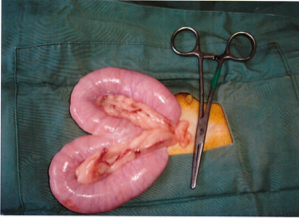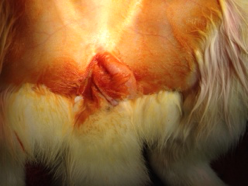Cronulla Veterinary Clinic provides de-sexing services for pet owners in Sutherland Shire.
All pet dogs and cats that are not meant for breeding should be desexed. This is just one of a number of measures that allow people and animals to live comfortably together in dense, urbanised environments. But there are other wider health and behavioural benefits to the desexing procedure that might not be immediately apparent.
What is desexing and why is it important?
Surgical desexing is the removal of part of the pet’s reproductive system under a general anaesthetic, which makes the animal sterile (unable to create offspring). For males this involves the removal of both testicles, and for females the removal of both ovaries and part of the uterus.
Male desexing is also known as castration (or neutering) and female desexing is also known as spaying, ovario-hysterectomy, or sometimes ovariectomy).
There are many reasons why desexing in pets is advised at a young age before sexual maturity occurs. There are health benefits, behavioural benefits and cost benefits to our society. Here are a few of these benefits.
Benefits of Desexing
In male dogs, desexing prevents a lot of possible prostate problems, as well as testicular cancers, certain cancers around the anal area, and perineal hernias.
Behavioural issues such as wandering/roaming (to find female mates), urine marking, aggression (especially towards other male dogs) and inappropriate mounting (“humping”), can be reduced by desexing as well.
Less roaming means less risk of being the victim of a car accident, or getting lost and injured.
In female dogs, desexing can prevent mammary cancers (especially if done before the first heat), reproductive organ diseases such as “pyometra” (a womb infection which is potentially life threatening and usually needs emergency surgery), ovarian cysts, ovarian and uterine cancers.
 It also prevents unwanted attention from undesexed males or unwanted matings, unplanned pregnancies, and phantom pregnancy behaviour.
It also prevents unwanted attention from undesexed males or unwanted matings, unplanned pregnancies, and phantom pregnancy behaviour.
While some people think that having at least 1 litter can improve the temperament of the dog, there is no scientific evidence to support this theory.
In male cats, desexing prevents testicular cancers, reduces the roaming and the size of the cat’s territory (and therefore the chances of getting hit by a car, getting lost, or being attacked by other animals). It also reduces fighting with other cats, which can lead to cat fight injuries (such as abscesses) and cat fight related diseases such as Feline Immunodeficiency Virus (FIV).
At home, desexing can reduce the tendency of male cats to urine spray and mark (undesexed cat urine smells very strong), and it can also make the cat more affectionate towards people and less aggressive overall.
In female cats, desexing helps prevent mammary cancers, especially when the procedure is done before the cat comes on heat.
Desexing also prevents other reproductive organ cancers, unwanted pregnancies, on heat behaviours (cats come on heat multiple times per season and become more vocal, more affectionate, more restless and may try to escape to find a mate).
In male rabbits, desexing early can make them more settled and less territorial. For female rabbits it is extremely important to desex them when they are young, because undesexed females have a high risk of developing uterine (womb) cancer later in life.
Any male animal who has 1 or both testicles NOT dropped into the scrotum when still young has an increased risk to develop testicular cancers…even more reason to have them desexed.
 When to desex and what to expect?
When to desex and what to expect?
We recommend desexing cats from about 4.5 – 5.5 months of age. Female cats in the right season can come on heat very early. We recommend desexing from about 2 weeks after her last kitten vaccination.
Dogs are ideally desexed around 5 – 5.5 months of age.
Male rabbits are desexed from 4-6 months of age, and females from 5-6 months old.
For dogs and cats, the procedure is a day surgery. They should arrive in the morning without having been fed. After a health check-up, an injection with a sedative and pain relief will be given to the animal. Intravenous fluids will help support your pet during surgery, and a heat pad will support their body temperature. The surgery will be performed with sterile instruments, in a dedicated surgery room, with a dedicated surgery nurse and anaesthetic equipment.
After the surgery, more pain relief will be provided, and an Elizabethan Collar will be supplied. For rabbits, the routine is a little bit different. Rabbits are not kept from eating before the surgery, and are generally kept overnight for extra postoperative care.
If you have any questions regarding desexing of your pet, please don’t hesitate to contact the Cronulla Veterinary Clinic on 9527 2604.
